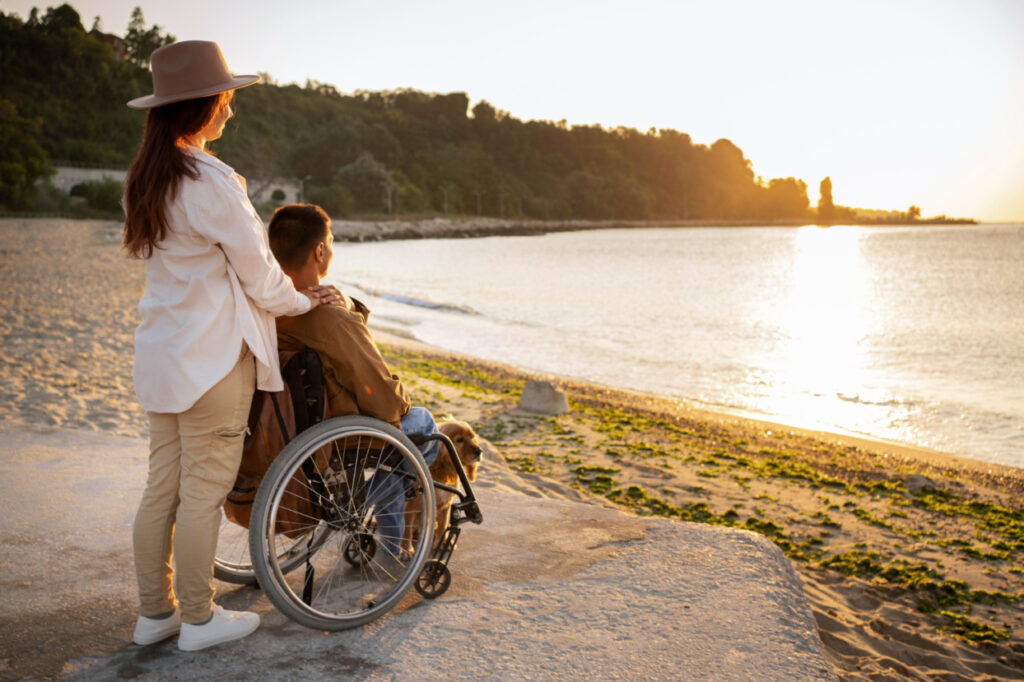Personal care is one of the most important parts of our daily routine and something many of us take for granted. However, for seniors and those living with a disability, personal care can be more challenging. The ability to take care of ourselves on a personal level means we can feel more confident and take pride in our appearance. Most importantly, maintaining our personal care allows us to be more comfortable interacting with those closest to us. Everyone deserves access to personal care which is why the NDIS and Commonwealth Aged Care Program provides a range of personal care options available to those that need it.
So what is personal care? In this blog post, we answer the top 10 most common FAQs about personal care. We will cover who personal care is for, what tasks it includes, and the benefits of receiving personal care.
What is personal care?
Personal care is a form of care when direct contact between the carer and the care recipient is required. It’s a type of care that helps with activities of daily living that are of a more private nature and encompasses basic tasks that we do every day that allow us to take pride in our general hygiene and appearance.
What kind of tasks does personal care cover?
Personal care tasks can include, but are not limited to:
- Washing
- Showering
- Dressing and undressing
- Grooming
- Toileting
- Eating
- Moving in and out of your bed
- Mobility assistance
It’s important to note that personal care tasks can be different for everyone and will be dependent on your individual needs.
Who is personal care for?
Personal care is for anyone that needs assistance with activities of daily living. This can include anyone currently living in an aged care facility or receiving support through the NDIS.
What are the benefits of personal care?
Personal care is an important part of our daily routine and can make a big difference to our overall well-being. There are many benefits to receiving personal care, some of these include:
- Maintaining hygiene – this reduces the chance of infection, illness, and bad odors.
- Taking care of our appearance – which is highly important for onces self-esteem and confidence.
- Reducing the risk of injury – by reducing the chance of falls or accidents in the home by having someone there to assist with mobility.
- It provides us with the confidence to interact with others by feeling comfortable and presentable when around those closest to us.
- Having someone to rely on in the instance of an emergency or for both moral and physical support. This is a big relief to family members of care recipients, knowing they’re in capable hands.
What professionals provide personal care?
There are a number of professionals that are qualified to provide personal care. Care will typically be administered by Support workers which are employees of a registered NDIS provider. For more complex needs such as administering medication, personal care may be provided by a Community Nurse.
Can I change my Personal Carer?
Yes you can. Just as you have a choice in who provides your support services, you also have a choice in the individual that provides your care. If you feel like your Carer isn’t meeting your specific needs, you are entitled to request a change.
What times can I receive care?
Personal care is typically provided during daylight hours, however, in some instances, overnight support may be required. If this is the case, your provider will work with you to develop a care plan that meets your specific needs.
How do I access personal care?
There are a few different ways to access personal care services. For NDIS participants, you will need to have your care needs assessed by an NDIS planner. Once your care needs have been assessed and approved, you will be able to access care through a registered NDIS provider. If you are not an NDIS participant, you can still access care through your local council or a private provider.
For Seniors, accessing personal care is a little different. If you are over the age of 65 and need personal care, you will need to have an Aged Care Assessment Team (ACAT) assess your care needs. Once your care needs have been assessed, you will be able to access care through either a government-funded or private provider.
How much does personal care cost?
The cost of personal care will depend on a number of different factors, such as the type and frequency of care you need, the provider you choose, and whether you are an NDIS participant or a senior.
If you are an NDIS participant, the cost of your care will be covered by the NDIS. If you are a senior, the cost of your care will be covered by either the government or a private provider.
What makes a great personal care provider?
A great personal care provider is someone who provides access to Carers, Support Workers, and Nurses that are patient, empathetic, and understanding. They should be able to adapt to your specific needs and provide you with the care you need to live a happy and healthy life. Personal care is an ongoing process, so a good provider will have processes in place to receive ongoing feedback. For example, a good provider will consider if the care meets your needs. How can the care be improved? And are you comfortable with your Carer?
If you’re looking for A personal care provider in your area, get in touch with us at OSAN Ability Assist. We’ve got a range of talented staff members that are experts at providing care for people living with a disability and seniors.










